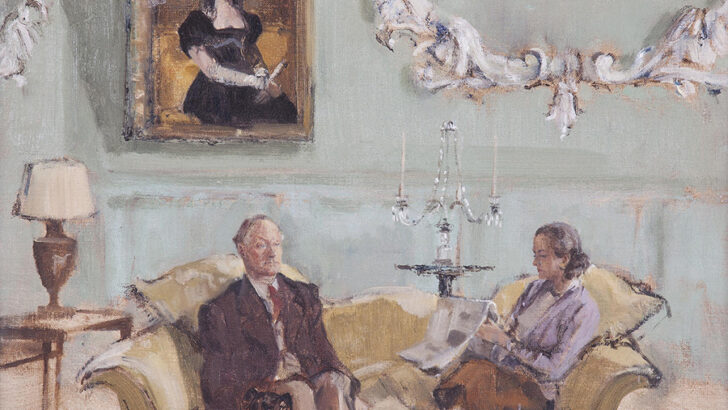Since the founding of the state in 1922 the question of a sort of Order of Merit, a Legion d’Honneur, or even a Presidential Medal of Freedom (a successor to the Presidential Medal of Honour) in the USA, has been much debated.
The Constitution does not allow the awarding of any title of nobility, and does not permit citizens of Ireland to accept titles from other nations – though seemingly there is little trouble about the use of titles awarded by the Vatican.
Ireland has thus seemed to many people over the decades to be strangely adverse to any concept of honouring anyone. We have it on the highest authority, of course, that a prophet – by which is meant a person of insight and distinction – “is not without honour, save in his own country”.
Anomalous
This gave rise to the anomalous use of purely honorary awards of doctorates by Irish universities as a form of erzats knighthood, later followed by the stranger concept of honorary knighthood from Britain.
One of the released files deals specifically with government hesitations over several administrations about just how we should honour those of merit among us.
In the early governments there was a feeling there should be no awards. In a republic – even before we were a republic – everyone was equal. No one should be seen as having special merit.
This matter goes back at least to 1929. In 1930 the Executive Council of the Irish Free State found the matter too tangled up with the notion of the King as the “ fount of all honours”. The role of the king in Irish public life indeed was the question that led to the assassination of Kevin O’Higgins in 1927 – as clearly stated by Terence de Vere White in his biography.
During the Eucharistic Congress in 1932 the treatment of James MacNeill, the Governor General, seen as the king’s representative in Ireland by many nationalist, was treated with studied rudeness by de Valera and his party. It was de Valera’s new Constitution of 1937, inaugurating a president, that shaped the matter of honours in Ireland. There were simply to be none.
In April 1948 Mr J. A. Costello thought the matter “should not be abandoned entirely”, but it should not be followed up on for the time being”
In 1946 the government of the day, still led by de Valera, decided the question of an honours list should be decided “in the light of relevant provisions of the Constitution and the approaches in other countries”, that is to say other republics, such as the USA, France, Germany and others.
A draft scheme was drawn up by Foreign affairs for circulation to the other departments for comment. Not all had done so by the time the government went out of office, and so the matter was dropped.
In April 1948 Mr JA Costello thought the matter “should not be abandoned entirely”, but it should not be followed up on for the time being.
In May 1953, when de Valera had the matter brought to his attention, after consulting his colleagues (many of whom were strict republicans and utterly opposed to honours of any kind) felt “the time was not apposite for the symbolism of an honours system.” He clearly had in mind the British system rather than the French.
Again in May 1956 John A. Costello, back in office as leader of the second inter-party government, decided to leave it alone all over again. A little later Seán Lemass did not consider that “there appeared to be widespread public interest” in the matter of an honours list. In January 1960 Foreign Affairs again suggested an inter-departmental consultation, but this was not pursued in the light of what had been said back in 1959.
In 1963 Mr Lemass wrote to the leaders of other political parties to suggest a Joint Oireachas Committee. The Labour Party was not interested in the matter, while Fine Gael thought it would not be expedient at present. The matter dropped. Again.
When the honorary citizenship was granted to Sir Alfred and Lady Beit, further consideration was given, yet again, to the proposal – but it seemed that the time was still not right for such a proposal.
Mooted
An “All-Ireland” context was mooted – but this too seemed to have few in favour of it. So the matter dragged on, leading still a fugitive existence in files being passed from hand to hand, and department to department, with nothing being done.
But still by April 1996, when it was still under advisement, it never seemed to advance. Ireland remained, almost uniquely in the world, a country without a state system of honouring the meritorious among its citizens.
Have we, many might ask, no sense of the civil virtues of merit and honour?
(National Archives file 2024/51/17)


 Peter Costello
Peter Costello Sir Alfred and Lady Beit, honoured in an Irish way
Sir Alfred and Lady Beit, honoured in an Irish way 